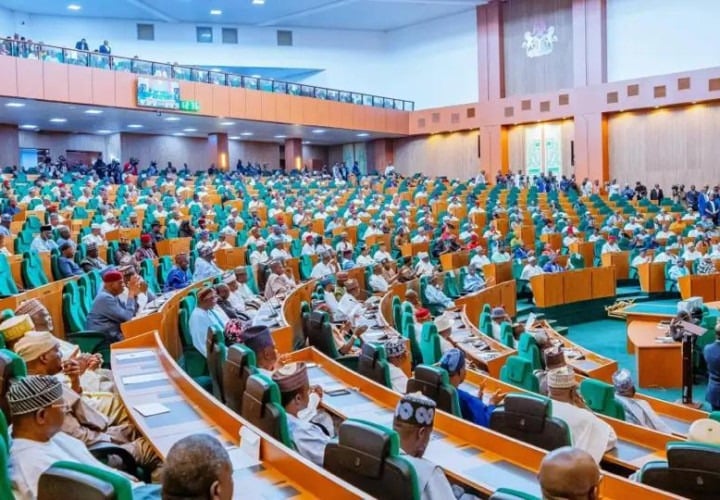The House of Representatives, driven by a commitment to transparency and accountability in public spending, launched an investigation into the disbursement of N2.4 trillion released by the Federal Government for project execution across Nigeria. This substantial sum, intended to fuel development and improve infrastructure, prompted concerns among lawmakers who demanded tangible proof of its effective utilization. The inquiry was sparked by protests from contractors claiming unpaid arrears, a situation that necessitated the intervention of the House to mediate and restore order. The House leadership, recognizing the gravity of the situation and the importance of ensuring value for public funds, established a special committee to delve into the matter and ensure that allocated funds translated into visible and impactful projects for the benefit of Nigerians.
The committee’s initial efforts resulted in a partial resolution, with the government committing to releasing 25% of the outstanding debt to contractors. However, subsequent revelations from the Office of the Accountant General of the Federation (OAGF) painted a more complex picture. While the OAGF confirmed the disbursement of N2.4 trillion, along with an additional N760 billion in approved warrants and cash backing, contractors continued to express grievances about unpaid dues. This discrepancy between official pronouncements and the persistent complaints from contractors raised red flags, compelling the House to demand a comprehensive breakdown of all payments made, aiming to reconcile government claims with the realities on the ground.
The House, under the leadership of its Deputy Speaker and Chairman of the Ad-hoc Committee on Budget Implementation, Benjamin Kalu, emphasized that the substantial amount disbursed demanded concrete results. The committee expressed a determination to expose any discrepancies between claimed expenditures and actual project completion. Kalu stressed the importance of aligning financial outlays with tangible improvements in infrastructure and public services, condemning the practice of presenting certificates of completion for projects that exist only on paper. The committee’s focus shifted to identifying who received payments, the specific amounts disbursed, and who remained unpaid.
The investigation aimed to uncover potential instances of fraud and mismanagement, ensuring that public funds were used judiciously and for their intended purpose. Kalu highlighted the stark contrast between the significant sums reportedly disbursed and the continued outcry from contractors, signaling the possibility of irregularities. He underscored the committee’s commitment to uncovering the truth, emphasizing that the N2.4 trillion was not an insignificant sum and that Nigerians deserved to see tangible evidence of its impact on their lives. The message was clear: public funds must translate into real projects that benefit the citizens.
The committee’s scrutiny extended beyond mere financial records, encompassing the actual physical existence and functionality of projects. Kalu condemned the deceptive practice of claiming project completion while the reality on the ground remained starkly different. He used poignant examples, such as declaring hospitals complete while patients lack beds and claiming construction of classrooms while children continue to study under trees, to illustrate the unacceptable nature of such discrepancies. The demand for a verified spreadsheet from the Accountant-General aimed to provide a clear and verifiable record of payments, enabling the committee to compare these records with the contractors’ claims and identify any inconsistencies.
The House of Representatives, determined to ensure accountability and transparency, pledged to leave no stone unturned in its pursuit of the truth. The committee reiterated its commitment to exposing any wrongdoing and ensuring that those responsible are held accountable. A follow-up review session was scheduled to assess the progress made and to provide a platform for both government officials and contractors to present their perspectives. This ongoing investigation represents a critical step in ensuring responsible management of public resources and ensuring that funds allocated for development projects genuinely contribute to the betterment of Nigerians’ lives. The House’s commitment to this process signifies a crucial step towards fostering greater transparency and accountability in public finance management.














